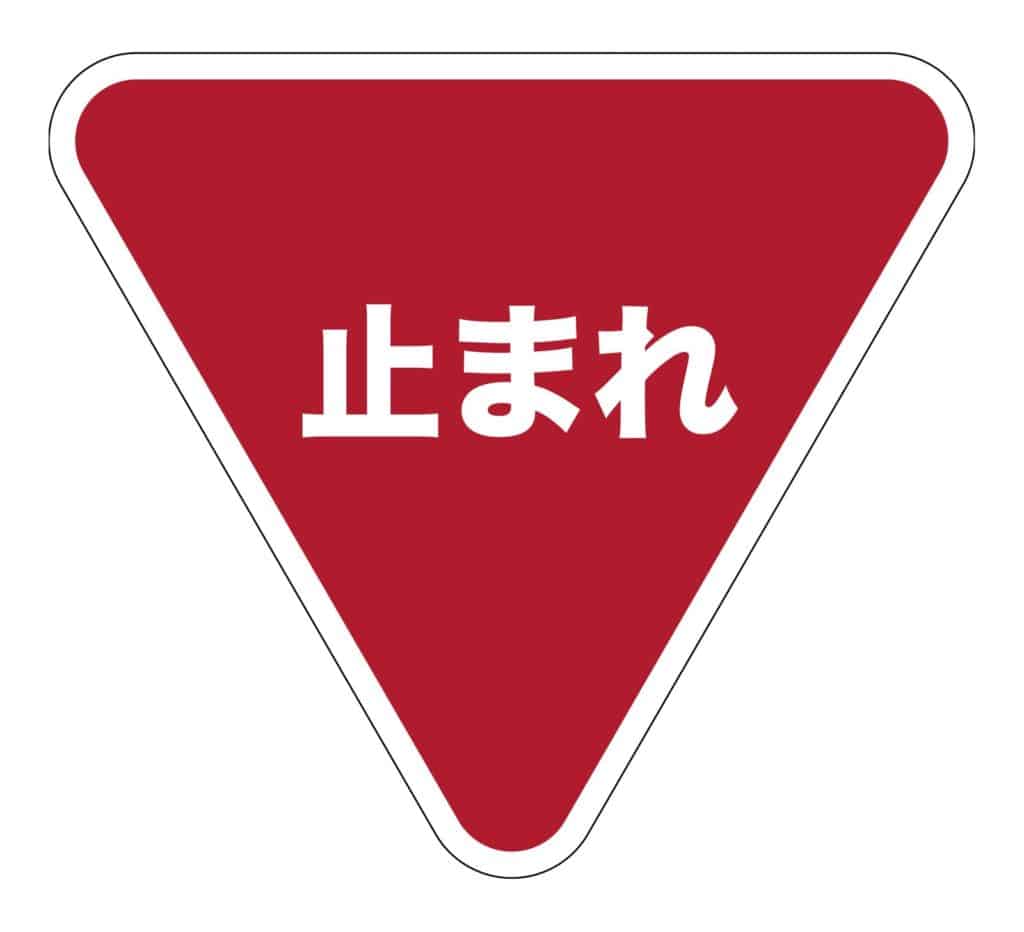
- What is the meaning of “Yamero”?
- “Yamero” vs. “Yamete” & “Yamete Kudasai”
- Yamero quotes from anime & manga
- Difference between yameru and yamero
- Meanings of yameru やめる
- Kanji Chinese Characters used to write yameru
- Yamete meaning
- Other Japanese phrases with similar meanings to “yamero”
- More polite ways to say “yamero”
- “Yamero” In popular culture
- Yamero Sound
- Yamero as a meme
- In Conclusion
In one of the strange quirks of mass-online culture, the Japanese word “Yamero” came to be widely used outside of Japan in the mid 2010s, along with “yamete kudasai” which I’ve done explained the meaning of in the past.
People who are into anime are also often familiar with the yamero from that medium.
I’ll go into that more below, but let’s start with a look at the word from a straight, language perspective first.
What is the meaning of “Yamero”?
Yamero literally means “stop it!”. It is often used in the sense of telling someone to stop doing something, so perhaps “cut it out” or “quit it!” are better translations.
やめろ
Yamero
Stop it!
“Yamero” vs. “Yamete” & “Yamete Kudasai”

Yamero やめろ is a more forceful way of saying “cut it out” than Yamete やめて (stop!) or yamete kudasai やめてください (stop, please!).
Both of the the words are based on the word verb yameru やめる which means to stop, or quit.
Both “yamero” and “yamete” are imperatives, meaning that they are telling or imploring someone to do something.
But where saying yamero is giving an order to stop, yamete can be interpreted as either telling or asking someone to stop.
Using yamero suggests you have the authority to implement something. Yamete suggests that you are telling them someone strongly to stop something, but may not have the means to force them.
Because forcefulness is more associated with masculinity than femininity, the word yamero is more associated with men than women. Of course, this idea is a social construct, so it is not uncommon for women also to use stronger language and give a hearty yamero.
Example sentences using “Yamero”
話をやめろ
Hanashi wo yamero
Quit talking!
やめろ!, 黙れ!
Yamero! Damare!
Shut your mouth!
気取るのはやめろ
Kidoru no wa yamero
Stop posing!
問題を避けるのをやめろ.
Mondai wo sakeru no wo yamero
Stop avoiding the problem
彼への非難をやめろ
Kare e no hinan wo yamero
Get off his back!
Example sentences using “yamete”
お願い、やめて!
Onegai, yamete
Please, don’t!
ねえ, やめて!
Ne, yamete!
Hey, stop it!
冗談はやめて。
Jyodan wa yamete
Don’t joke.
怒鳴るのはやめて
Donaru no wa yamete
Stop shouting!
非難するのはやめて
Hinan suru no wa yamete
Don’t criticise
Yamero quotes from anime & manga

Many
#1「勝ちてーならやれ 負けていいならやめろ 勝ちてーのにやめる そんな選択肢はねえ!」(弱虫ペダル)
” kachi te – nara yare makete ii nara yamero kachite – no ni yameru sonna sentakushi wa nē!” yowamushi pedaru
If you are determined to win, go for it. If you don’t mind losing, then quit. But if winning is what you want, then quitting isn’t an option. (Yowamushi Pedal )
#2「その作り笑いを止めろ!」(「五等分の花嫁」風太郎)
” sono tsukuriwarai o tomero !”” go tōbun no hanayome” Kaze Tarō
Cut out the fake laughter! (The Quintessential Quintuplets)
#3 やめろと言ったろ、死にたいのか!? (機動戦士ガンダムSEED キラ•ヤマト)
yamero to ittaro, shinitai no ka!? kidō senshi gan damu SEED kira Yamato
I told you to let up, do you want to die? (Mobile Suit Gundam SEED – Kira Yamato)
#4 やめろ…もうやめてくれー!やめろーーー!!(サトシ/ミュウツーの逆襲)
yamero mō yametekure -! yamero —!! Satoshi myūtsu- no gyakushū
Stop…just quit it! Stop! (Pokémon: The First Movie)
#5「やめろォオオ!やったら殺すぞォ。絶対殺す、絶対だぞ!やめろォオ、やめろオオ。」(うしおととら(漫画) : 第四十八章「雷鳴の海」 – 其ノ九「憎しみの海」)
” yamero xooo ! yattara korosu zo xo. zettai korosu, zettai da zo ! yamero xoo, yamero oo.” ushi oto tora manga : dai yon jū hachi shō” raimei no umi” – no kyū” nikushimi no umi”
Stop! If you go ahead, I’ll kill you. I swear I’ll kill you, I swear! Quit it, quit it! (Ushio and Tora)
Difference between yameru and yamero

I’ll do a full a explanation of the different meanings of yameru やめる below, but the yameru is basically a verb meaning “stop”.
Puting the ending ro ろ on the end of a word changes it to an imperative, meaning that you are commanding someone to do something.
Other words that can have ro ろ placed on the end of them include:
食べろ
Tabero
Eat!
Telling someone to eat as a command is not something that happens every day, but you can imagine, say, a guard telling a prisoner to eat their meal, “tabero” is the appropriate way to say that in Japanese.
喋ろ
Shabero
Talk!
You can imagine someone, say, commanding someone to speak when they are at the podium to give a talk to a group of people and find themselves unable to get any words out.
生きろ
Ikiro
Live!
This could be used by a friend of someone that has given up on life who wants strongly beseech their friend to “keep on living”.
Meanings of yameru やめる
To understand yamero properly, you first need to understand the word that it is based on.
The word yameru in Japanese has three main meanings.
If you look it up in a dictionary you get:
Yameru (止める、已める、 廃める) meaning #1
1 to stop (an activity); to cease; to discontinue; to end; to quit
2 to cancel; to abandon; to give up; to abolish; to abstain; to refrain
Yameru (辞める、罷める、 退める)meaning #2
In a related meaning yameru can also mean:
To resign; to retire; to quit; to leave (one’s job, etc.)
Yameru (病める、痛める)meaning #3
Yameru also has a totally different meaning unrelated to the first two:
sick; ill; ailing
Kanji Chinese Characters used to write yameru

Yameru can be written with several different Kanji Chinese characters, to express the different meanings of the word:
止める
已める
廃める
病める
痛める
病める
痛める
Perhaps because there are so many characters to choose from when writing yameru, it is very common for Japanese people to write the word in Hiragana as やめる.
Of the Kanji that are used, the first one 止める is the most common.
This is the same character that you see written on roads and road signs in Japan saying 止まれ tomare, meaning “Stop”.
Yamete meaning
Yamete やめて is the imperative form of the verb yameru やめる, which means to stop doing something.
Examples of yameru やめる and やめて yamete
タバコをやめるのはむずかしい。
Tabaco wo yameru no wa muzukashi
Stopping smoking is hard.
タバコを吸うのをやめてください
Tabako wo suu no wo yamete kudasai.
Please stop smoking.
Other Japanese phrases with similar meanings to “yamero”
Yamero is very forceful, but there are a lot of similar forms of yameru with different endings and conjugations that are used a lot.
Probably the most well known ones outside Japan are yamete kudasai.
Others include:
やめてくれる?
Yamete kureru?
Could you just stop it?
This phrase is fairly neutral in tone. Well, as neutral as telling someone to “just stop something” can be really…
You can shorten the same phrase to change it from a questioning phrase to a more assertive one by saying:
やめてくれ
Yamete kure.
Just stop it.
This has a somewhat “masculine” tone to it, and sounds quite aggressive if used in the right tone. It can also be used as a fairly standard “rough and tumble” sounding phrase, mostly between men.
To achieve a softer, almost cute tone you can go with:
やめてちょうだい
Yamete chodai
Give it a rest.
Putting chodai on the end of a phrase to mean “please give me” has a cute, almost child-like sound to it. Saying “stop it” this way definitely “softens the blow” somewhat.
やめてもらいたい
Yamete moraitai
I would like you to stop that.
やめてもらえますか
Yamete moraemasu ka
Could you stop that for me?
やめてほしい
Yamete hoshii
I want you to stop that.
Japanese being a very polite people, and a very polite language, have the uncanny ability to express dissatisfaction with a person or situation while still showing respect.
More polite ways to say “yamero”
おやめください
oyame kudasai
Please don’t.
Putting the honorific “O” on the front of a word makes it much more polite.
やめていただけませんか
Yamete itadakemasen ka
Would you mind stopping that?
“Itadaku” is a super polite verb form of the word “morau”, meaning to receive. So in a sense, in this phrase, it is like you are saying “May I receive the gift of you stopping what you are doing”.
Putting the “itadaku” into negative form as “itadakemasenka”, as in “won’t you?” gives the person you are speaking to an easy option of turning you down, and thus makes it a softer, more polite, way of telling someone to do something.
おやめいただけませんか
o yame itadakemasen ka
If you take the phrase above and put an “O” in front of it, it gets politer still!
Of course, however much you dress up “yamete” you are still, fundamentally telling someone to stop something.
To get around this, Japanese also has options of words that are less direct, such as:
ご遠慮ください
go enryo kudasai
Please refrain from
お控えください
o hikae kudasai
Please abstain from
From here, let’s go on to have a look at the cultural context of the phrase “yamete kudasai” and its use in popular culture.
“Yamero” In popular culture
Yamero Sound
Yamero sounds like this when pronounced in normal Japanese by a female voice:
And like this by a male voice:
Yamero as a meme
“Yamero” itself became a huge meme on the internet when a picture of the extravagantly named character Lelouch Lamperouge from anime Code Geass was posted to messaging board site 4chan here in July of 2015. The picture showed the character’s face with an intense expression and the caption “YAMERO”.
Around a year later, a picture of a dog being squirted with a hose followed by a close up panel of the dog’s face with the word “Yamero” written next to it was posted to Tumbler in 2016.

This led to people posting all kinds of animal pictures with the word “Yamero” next to them to all kinds of platforms across the net.
The cult of “yamero” was born.
In Conclusion
Generally, “yamero” is not a phrase you hear that often in Japan. But then, how often do you need to say “Quit it!” in English?
That being said, there is a tendency of people in Japan to affect an over the top reaction to certain situations. Think of everytime someone tries a food on a Japanese food show before breaking out into an expression of pure ecstasy and letting out a yelled “umai”.
In a culture that is famous for being polite and talking in indirect ways, they also have an opposite tendency to ham it up in their speech.
This is especially so in Japanese TV, movies and anime. Why say, “do you mind stopping that”, when you could say “HEEEEY, CUT IT OUT!!!”?
It may be true that Japanese people love the subtlety of the falling cherry blossom, but they also go in for a bit of drama!
Think you know all about Japanese cultural subtleties? I say to you, “Yameroooooo!”
If you’re interested in language that is often used in anime, you might want to check out my look at the meaning of kimetsu no yaiba.
Or see simple Japanese phrases such as how to say “how are you” in Japanese.
